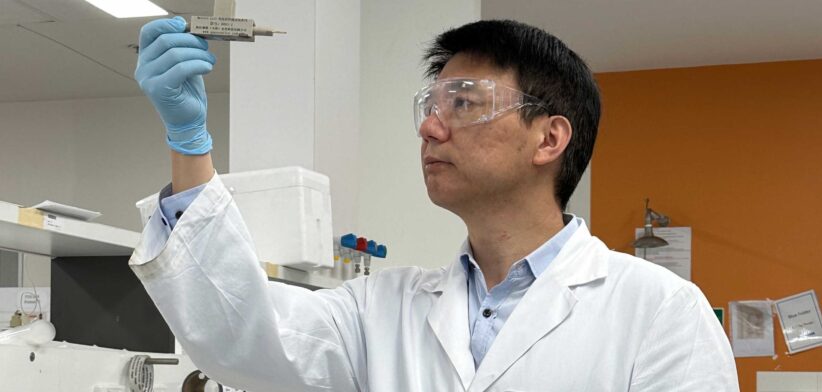An eco-friendly battery, which would reduce the current reliance on lithium, has been created by Australian scientists.
Developed at UNSW Sydney, the high-performance, rechargeable organic battery leverages hydrogen ions, or protons, instead of traditional lithium.
Professor Chuan Zhao said the new batteries had the potential to address some of the challenges in modern energy storage, including resource scarcity, environmental impact, safety and cost.
Professor Zhao said they had the ability to store energy quickly, last longer, and performed well under sub-zero conditions.
“We have developed a novel, high-capacity small-molecule material for proton storage,” he said.
“Using this material, we successfully built an all-organic proton battery that is effective at both room temperature and sub-zero freezing temperatures.”
PhD candidate Sicheng Wu lithium-ion batteries were becoming a dominant product in energy storage, but had limitations.
“Lithium is a finite resource that is not evenly distributed on earth, so some countries may not have access to low cost lithium sources.
“Lithium batteries also have very big challenge regarding fast-charging applications, safety, and they have low efficiency in cold temperature.”
Mr Wu said proton batteries were gaining attention as an innovative and sustainable alternative in the energy field.
He said protons have the smallest ionic radius and mass of all elements, which allowed them to diffuse quickly.
“Using protons results in batteries with high energy and power density, plus, protons are relatively inexpensive, produce zero carbon emissions and are fast charging.
“At the moment, we don’t have any suitable solutions to grid-scale energy storage, because we can’t use tons of lithium batteries to do that job, due to the price and lack of safety.”
Mr Wu said given the low cost, high safety and the fast charging performance of the proton battery it has the potential to be used in a variety of situations, including grid-scale energy storage.
Read the full study: A High-capacity Benzoquinone Derivative Anode for All-organic Long-cycle Aqueous Proton Batteries.








